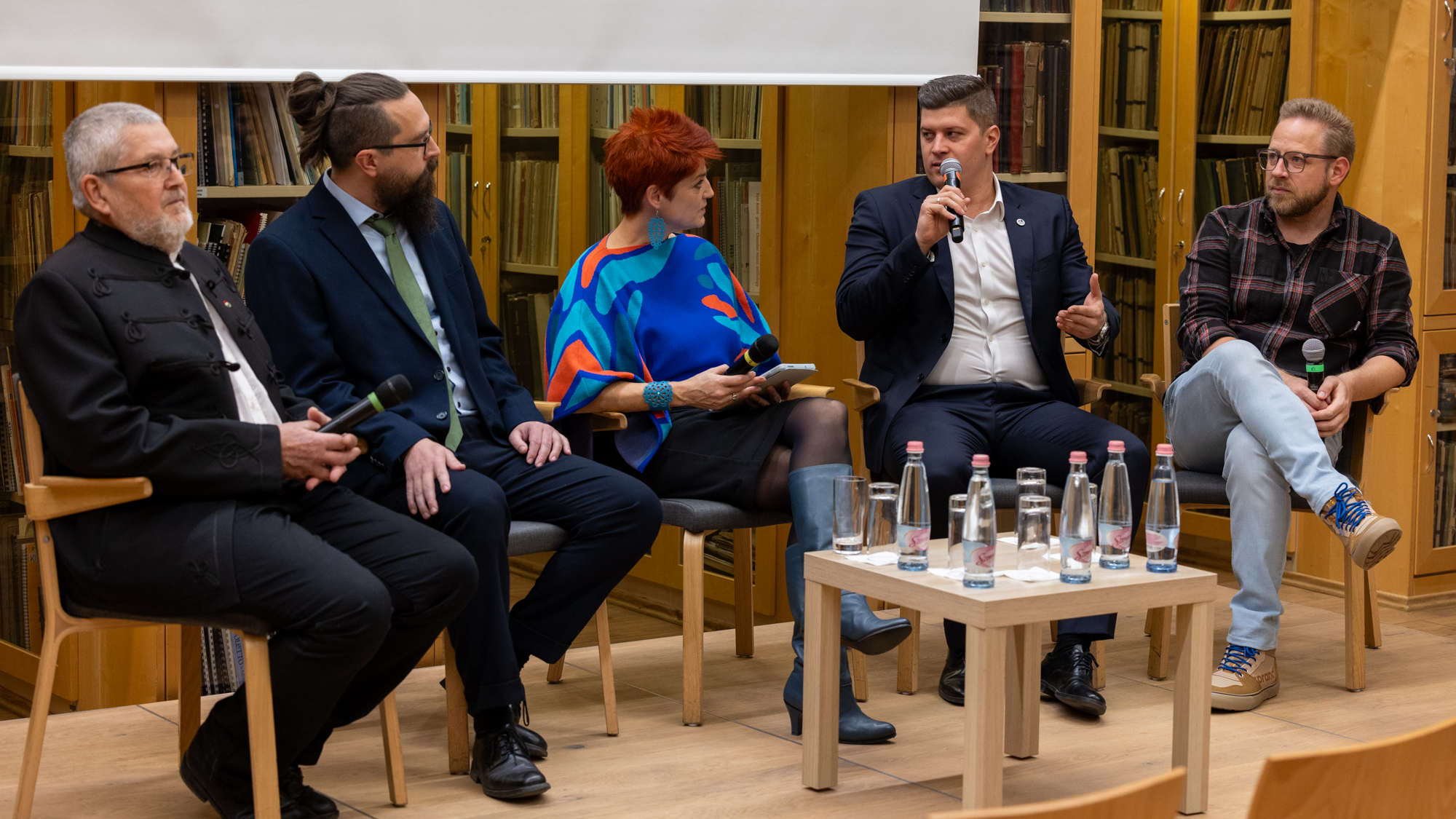The first panel session regarding Perseverance showcased a dynamic exchange of ideas between host Piros Vágó, Olympic swimmer Dániel Gyurta, behavioural scientist Tamás Faragó, educator Péter Deák, and leader of Skool Péter Guzsaly. Their discussions spanned personal stories, groundbreaking research, and inspiring mentorship.
Dániel Gyurta highlighted perseverance as a cornerstone of success in individual sports. Reflecting on his career, he noted, ‘Perseverance is a talent in itself. In individual sports, we face the daily challenge of overcoming ourselves.’ He explained that athletes often hit mental and physical plateaus during training. ‘What matters isn’t what we feel at that moment but how quickly we can push through,’ he said, adding that the mental strain is the hardest hurdle.
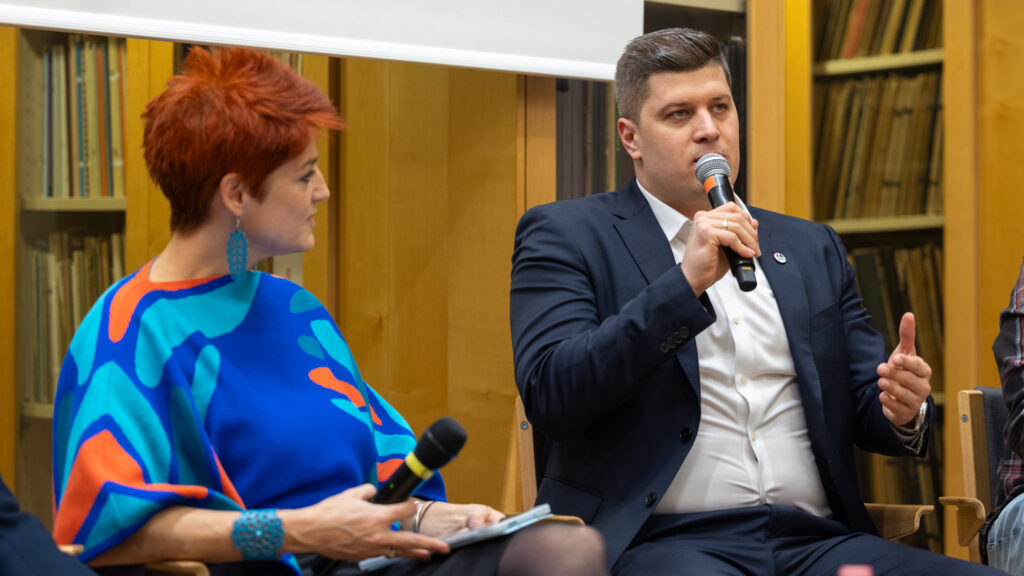
Gyurta emphasized that high-performance athletes have no room for excuses. ‘There is no separate final for those who are feeling unwell or lack motivation to train. You must show up every day because the next opportunity might only come four years later.’ He revealed that many competitors fail to perform at their peak under such pressure, with an estimated 66 per cent unable to meet their potential on the world stage. For him, the daily commitment to train harder than his rivals was a source of strength and focus.
Tamás Faragó provided a fascinating look into perseverance through his research on canine behaviour. He described experiments where dogs were given a seemingly solvable task—opening a box to retrieve a treat—that was later made impossible. Dogs responded in two distinct ways: some relentlessly scratched and clawed at the box, growing increasingly frustrated, while others paused, assessed the situation, and sought help from their human companions.
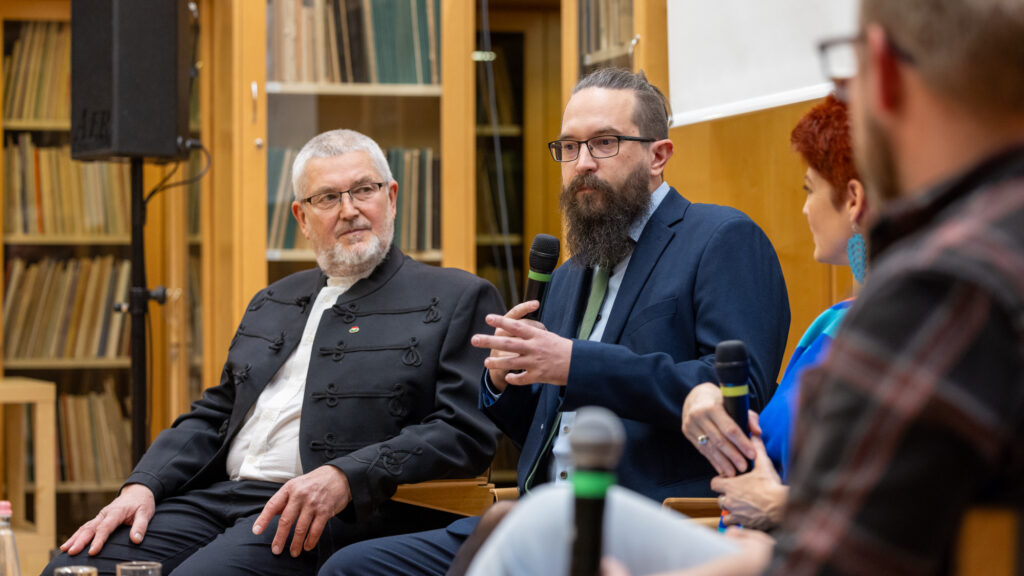
‘Dogs are excellent models for understanding human behaviour because they have been subjected to similar evolutionary pressures,’ Faragó explained. The study revealed that persistence and social problem-solving are both valuable traits, demonstrating that perseverance can manifest in diverse ways.
Péter Deák explored whether perseverance is an innate quality or a skill that can be developed. ‘It’s like a switch—a mental reserve of energy that we can tap into when needed,’ he remarked. Deák emphasized that while personality traits form a foundation, perseverance can be cultivated through training and mindset.
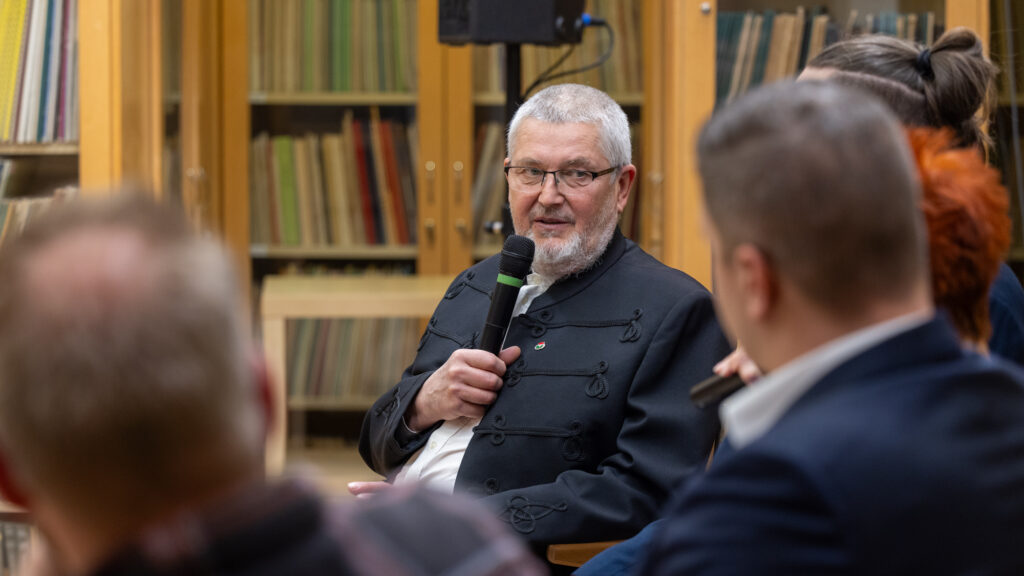
Sharing his own experiences, Guzsaly highlighted the importance of feedback and community. He discussed his role in mentoring young girls in programming, describing the story of a 14-year-old developer who began her journey in a workshop he organized. ‘Mentors and role models can ignite and sustain perseverance in others,’ he said, underscoring the broader impact of collective effort.
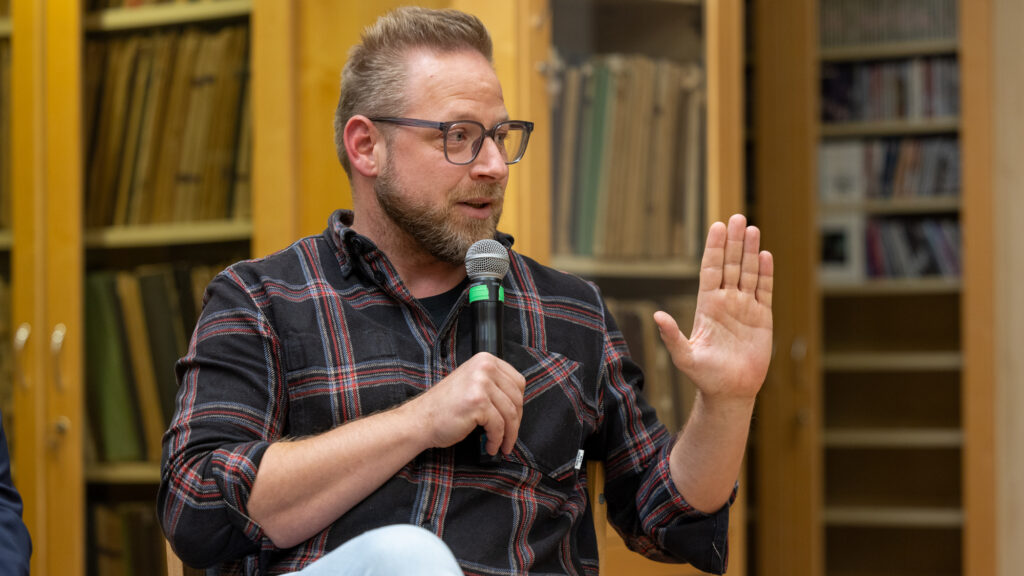
When asked about fostering perseverance in his own family, Gyurta noted that his parents never pressured him into competitive swimming but always supported his interests. ‘They put in the effort alongside me—weekends weren’t for relaxing but for taking us to practice,’ he said. This balanced approach allowed him to find intrinsic motivation, a principle he aims to uphold with his own children.
Despite moments of exhaustion when he felt ready to quit, Gyurta credited his coaches for teaching him to push beyond perceived limits. ‘When your mind tells you to stop, there’s often 30 per cent more left in you,’ he said, explaining how mental barriers protect the body but can also limit potential.
Deák brought attention to children from underprivileged backgrounds who often face life with no resources but immense perseverance. ‘These kids have to fight their battles alone, and they cherish every achievement because they know its value,’ he said.
The discussion concluded with a shared sentiment: perseverance is not merely an individual trait but a collective effort nurtured by communities, mentors, and collective experiences. Whether in sports, research, or personal growth, the power to endure and thrive lies within everyone—waiting to be cultivated.
More from the event:

